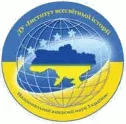Контроверсійні практики в історії сербо-хорватських відносин
##plugins.themes.bootstrap3.article.main##
Анотація
У статті досліджується сербо-хорватський конфлікт в ХХ – на початку ХХІ ст. Проаналізовано історію становлення сербської і хорватської державності; визначено причини конфронтації між двома близькими слов’янськими народами та висвітлено еволюцію їх взаємовідносин; з’ясовано детермінанти, які обумовлюють антагоністичний характер і демонстративну жорстокість сербо-хорватського протистояння. Вказано на формування після «Вітчизняної війни» 1991-1995 рр. двох паралельних «світів», внаслідок чого хорватська та сербська общини майже не перетинаються у повсякденному житті. Констатовано, що постійні сварки та бійки на національному ґрунті, спалення прапорів і паплюження державної символіки як були, так і залишаються буденними явищами від самого початку реінтеграції, а засуджені міжнародним трибуналом військові злочинці сприймаються обома громадами як національні герої та захисники Батьківщини. Акцентовано увагу на поступовому загостренні міжнаціонального протистояння в Хорватії та зростанні ксенофобських настроїв, що спостерігається останнім часом.
Обґрунтовано висновок про безуспішність давніх і сучасних спроб налагодити сербсько-хорватське співробітництво у побудові спільного майбутнього. Наголошується, що сербсько-хорватський конфлікт не виглядає вичерпаним не лише через важкий тягар минулого, який зумовлює взаємні звинувачення і застарілу ненависть. Підкреслюється, що в цьому протистоянні нині мова йде, передусім, про майбутнє – про долю різних національних проектів. Міраж «Великої Сербії» й досі спокушає значну частину сербського суспільства, що плекає реваншистські настрої, тоді як хорвати сповнені рішучості захистити завойовану незалежність. Відповідно, за певних міжнародних умов, протистояння політичних амбіцій на Балканах може легко знову спалахнути з новою силою, в черговий раз підтвердивши реноме цього регіону як «порохової діжки» Європи.
Завантаження
##plugins.themes.bootstrap3.article.details##
Посилання
Korni serbo-horvatskogo konflikta [Roots of the Serbo-Croatian conflict]. [Online]. Available from: https://ruserbia.com/culture/history/korni-serbsko-horvatskogo-konflikta/ [In Russian].
Zadohin, A., Nizovsky, F. (2000). Porohovoj pogreb Evropy [Powder Magazine of Europe]. Moskva: “Veche”. [In Russian].
Stepan Radich. [Online]. Available from: https://www.peoples.ru/state/politics/stjepan_radic/ [In Russian].
The International Criminal Tribunal for the Former Yugoslavia. [Online]. Available from: http://www.icty.org/x/cases/martic/ind/en/mar-2ai030909e.pdf [In English].
The International Criminal Tribunal for the Former Yugoslavia. [Online]. Available from: http://www.icty.org/x/cases/babic/ind/en/bab-ii031117e.pdf [In English].
International Tribunal for the Prosecution of Persons Responsible for Serious Violations of International Humanitarian Law Committed in the Territory of the Former Yugoslavia since 1991. [Online]. Available from: http://www.icty.org/x/cases/gotovina/tjug/en/110415_ judgement_vol2.pdf [In English].
Mlechin, L. (2001). MID. Ministru inostrannuh del: romantiki i ciniki [Ministry of Foreign Affairs. Foreign ministers: romantics and cynics]. Moskva: Centropoligraf. [In Russian].
Horvatia uchit Ukrainu “proschat’” [Croatia teaches Ukraine to “forgive”]. [Online]. Available from: https://eadaily.com/ru/news/2017/10/03/horvatiya-uchit-ukrainu-proshchat [In Russian].
Ostannij kerivnik Jugoslavii Stipe Mesich pro vijnu na Balkanah i v Ukraini [The last leader of Yugoslavia, Stipe Mesic, spoke about the war in the Balkans and in Ukraine]. [Online]. Available from: https://www.radiosvoboda.org/a/stipe-mesic-pro-pokarannia-za-vojenni-zlochiny/ 30332071.html [In Ukrainian].
Mesich, S. (2013). Kak razvalivalas’ Jugoslavia [How Yugoslavia fell apart]. Moskva: “Alpina Pablisher”. [In Russian].

